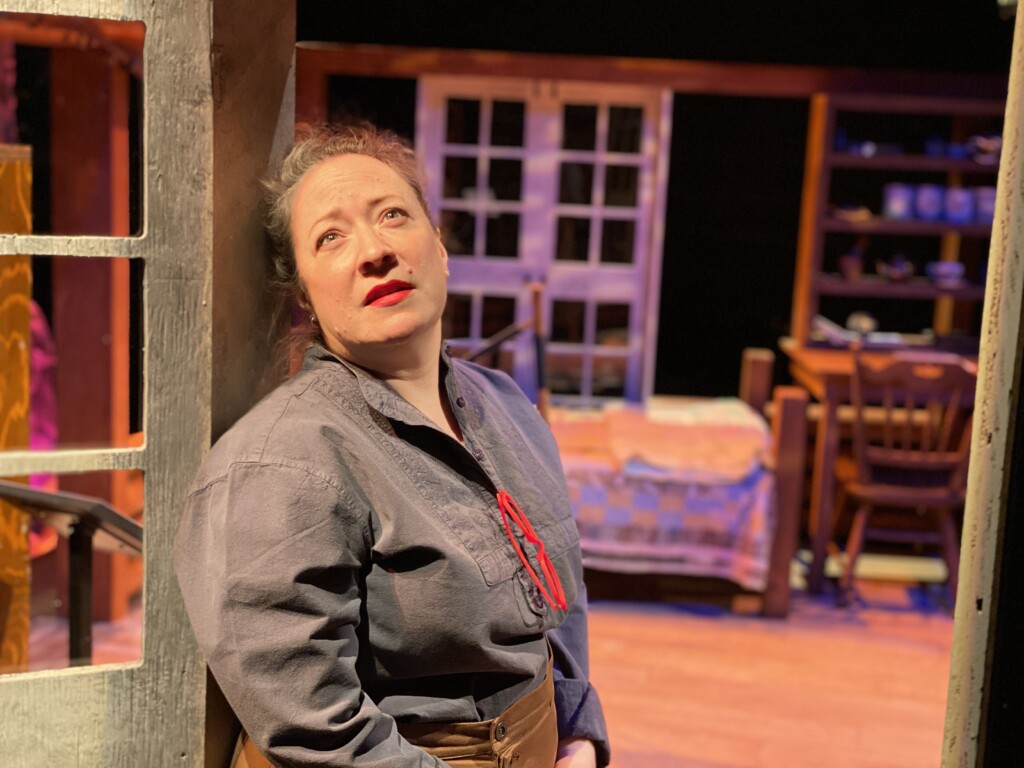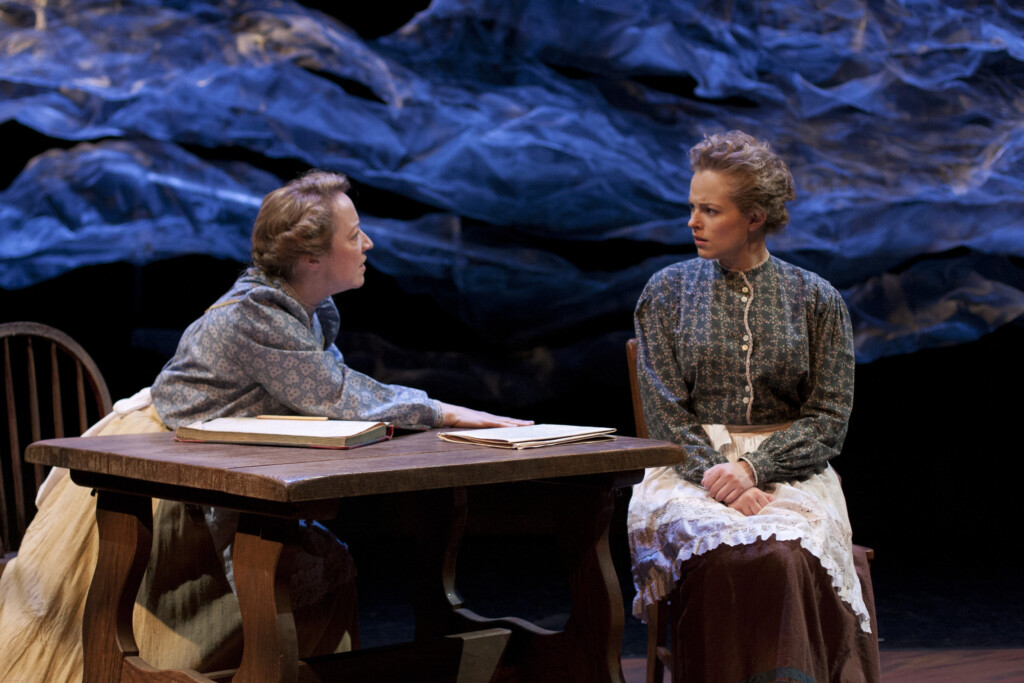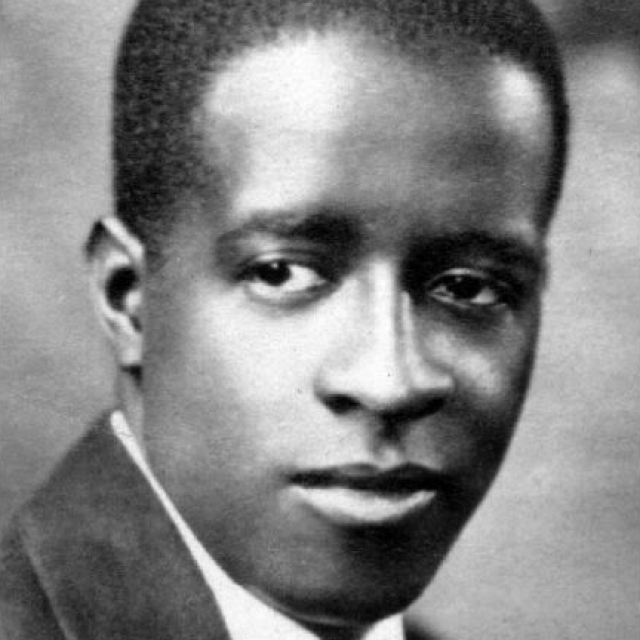FIRE . . . flaming, burning, searing, and penetrating far beneath the superficial items of the flesh to boil the sluggish blood.
FIRE … a cry of conquest in the night, warning those who sleep and revitalizing those who linger in the quiet places dozing.
FIRE . . . melting steel and iron bars, poking livid tongues between stone apertures and burning wooden opposition with a cackling chuckle of contempt.
FIRE . . . weaving vivid, hot designs upon an ebon bordered loom and satisfying pagan thirst for beauty unadorned . . . the flesh is sweet and real . . . the soul an inward flush of fire. . . . Beauty? . . . flesh on fire— on fire in the furnace of life blazing. . . . Wallace Thurman.
There is no greater ironic tragedy in the realm of creative geniuses than when an individual dies or their voice is silenced because of disease or illness while in the midst of an extraordinary blossoming of expression. Raised and educated in Salt Lake City and working in his early years as a journalist, Wallace Thurman quickly rose to major figure status in the Harlem Renaissance. While his own magazine Fire!! only led to one published issue, it was recognized for its pioneering impact as an avant-grade periodical.
At the age of 27, he co-wrote the first Broadway play written entirely or in part by an African American. In that same year (1929), he produced The Blacker the Berry, an extraordinary novel that was propelled by his experiences of life in the American West and his understanding of black society. “Thurman was a Westerner not only by birth and education, but also in terms of his candor, his egalitarianism, and his ultimate rejection of the hollow aspects of urbanization,” scholar Gerald Haslam wrote in 1971. “Yet he was no great admirer of the West’s treatment of Negroes either.“
He became the first Black editor-in-chief of a major publishing house (Macaulay), at the age of 28. Thurman was a master of satire, as evidenced in Infants of Spring (1932), which he set in “Niggerati Manor” and expressed his deep disillusionment of “New Negro” artists. A similar thread came through in another book published shortly after — Interne (1932). But, in 1934, at the age of 32, he died of tuberculosis in New York City, shortly after returning from a trip in the West.
When playwright Jenifer Nii, who had spent a good portion of her career life as a journalist, took up the story of Thurman’s life for what would become her first play, to be produced 13 years ago, it set off parallel trajectories of historical coincidences and larger significances — for the playwright, the actor who has played the role and for the company which has produced it.
That first Nii play produced by Plan-B Theatre — now titled Fire! — was the first work by an Asian American playwright premiered on an Utah stage. Fire!, which premiered in 2010 along with a companion piece about Wallace Stegner written by Debora Threedy, will be presented separately in an updated production by Plan-B in an April 13-23 run. Directed by Jerry Rapier, Fire! will feature Carleton Bluford, who played Thurman in the premiere 13 years ago.
Since then, like Thurman, fearlessly exploring a new genre or treatment at every turn, Nii has created an outstanding portfolio of plays for Plan-B. They include a brilliant adaptation of Nathaniel Hawthorne’s The Scarlet Letter, a play about the brief period in 19th century Utah history when Mormon women enjoyed the rights of suffrage (Suffrage), the company’s first original musical (Kingdom of Heaven), a play for children audiences based on animal rescue characters (Ruff!), a one-actor play based on the life of Josie Bassett (The Audacity), and a fascinating theatrical contemplation titled The Weird Play of the dynamics of art, affection, devotion, passion, romance, sexual attraction and spiritual connection. Suffrage and The Scarlet Letter were nominated for the American Theatre Critics Association/ Steinberg Award for the Best New American Play Produced Outside New York. The Weird Play was one of 10 plays in the U.S. to receive a Writers Alliance Grant from The Dramatists Guild Foundation. Including short plays she has written, this will be Plan-B’s 10th production of work by Nii.
Unfortunately, Nii is no longer able to write plays. In 2021, she was diagnosed with hippocampal atrophy, which means that parts of her brain are calcifying and her memory faculties are deteriorating. After the diagnosis, she sold her home and purchased an RV and has been traveling throughout the Western landscapes with her dogs — which she refers to as Housebox Life. Her condition is irreversible and while she is still able to travel, there is a daily check-in protocol to ensure her safety.

Photo Credit: Sharah Meservy.
If there was ever one work that could encapsulate every dimension and detail of Plan-B Theatre’s tremendous mission of artistic work to further The Utah Enlightenment, it is Fire! The play was a major evolutionary point in the company’s twin commitments to produce not only original works by Utah playwrights but also to open the doors as wide as possible for creative artists who historically have been invisible, silent and ignored in the arts and letters community of Utah. Even today, not one single public acknowledgement or tribute is available to honor Thurman who was as significant a pioneer with Utah roots as any others who have been given their own permanent place of recognition.
In a 2010 interview with The Selective Echo, Nii said, “There was so much I didn’t know, but felt strongly that I should have known, about Wallace Thurman. He was such an interesting, unique, dynamic person. Someone who emerged at a time and from an environment that you’d think would have inhibited him from doing the things he did, and becoming the person he became. He didn’t let that happen.” She added, “In terms of place and home: Again, in many ways, Thurman (at least the Thurman that’s available to us through his and other peoples’ writing) was a product of both. Growing up black, and gay, and non-LDS in Utah surely shaped his perspective of the world, and strengthened certain aspects within him. Then, as a central figure in the Harlem Renaissance — which itself was a defining period in American and world cultural evolution — he was enveloped in, and helped grow and develop a safe place where people could come together and inspire one another and play and argue together.”
As one can appreciate and comprehend the parallels and connections between Thurman and Nii, the experience of performing as Thurman also has had a profound impact upon Bluford.
In 2010, Bluford was a young actor, still early in his own creative blossoming phase. Being in Utah, Bluford instinctively comprehended the contours of the words Nii had crafted. After the premiere, The Selective Echo review (written by Mark Alvarez) highlighted Bluford’s performance: “Thurman stands against a wall in darkness behind the table. He wears a sharp suit with suspenders. Thurman leaps onto the table … and sings ‘Fire!!.’ His singing, movement and words evoke the Harlem Renaissance in which Thurman played an important role.”

directed by Jerry Rapier. Photo Credit: Rick Pollock.
The reality of the performance was authentic, as The Selective Echo noted: “Thurman speaks against the idea of artists as representatives not of who people are but who they can be. He writes about prejudice among black people. He asserts a reality clearly uncomfortable given the yellow rejection letters and criticism from peers. Albeit uncomfortable, the reality is authentic. Equally authentic are the ever-present silver flask and the nagging cough, both of which contribute to Thurman’s early death.”
After a 2021 Zoom reading of the play as part of Utah Humanities Book Festival and Welcoming Week, Bluford recalled that he was “scared out of my mind” when he was cast for the role. He added, “I didn’t know who Wallace Thurman was. Learning about him, especially through this play, the thing that struck me the most was how similar we were.”
Doing the role of Thurman became a transformative experience for the young actor. “He wanted to create, you know, he just wanted to create and in a big way, his dreams were huge, for him and his people and he never really got to … I mean he died at 32,” Bluford said in 2021. ”He never really got to come into him own. It’s an interesting thing, that line about realizing when you’re young and you’re trying to start a revolution and you’re all fired up. It’s interesting reading this play again, going back and being like, ‘Oh yeah, I felt like that a lot more when I was younger.’”

Five years after his first performance as Thurman, Bluford’s first play Mama was produced by Plan-B, the first original theatrical work by a Black playwright to be premiered in Utah. Mama was selected unanimously in a blind reading process involving 24 submissions from Utah-based playwrights 35 and younger in the inaugural competition for the David Ross Fetzer Foundation for Emerging Artists (The Davey Foundation). “The panel was composed of David Fetzer’s friend/filmmaker/actor Johnny Kuene, who loved that it was experimental in form; Nii, who found it beautifully written; playwright Debora Threedy, who found it to be unique but universal, and I thought it felt like a play that Davey’d really like,” Rapier said at the time.
In 2022, Bluford’s The Clean-Up Project produced some of the greatest moments on an Utah stage that this critic saw in 15 years. The play, which is set amidst a swift revolutionary takeover of the nation by Black nationalists, emerged from a journal entry — the most personal form of written expression we have — that Bluford wrote in the midst of the summer Black Lives Matter protests in 2020, following the murders of George Floyd and Breonna Taylor and many others who have been killed by police.

The play is framed as a jolt to our conscience and to test our capacity to overcome our fears and insecurities and deal directly with our history. As The Utah Review noted at its premiere, “Outstanding in every regard, Bluford’s The Clean-Up Project cements its place in the Plan-B canon and The Utah Enlightenment. In addition, Bluford achieves clear, exceptional results in playing with forms in his script writing that translate seamlessly across theatrical and cinematic borders.” Shortly after the premiere, Bluford took the lead in Salt Lake Acting Company’s production of Passing Strange, which received excellent reviews. Recently, he has been seen in such television series as Abbott Elementary, The Rookie Feds and The Conners. He also is in the forthcoming short film One Night in NOHO, directed by Marshall Anne Davies.
In a recent interview with The Utah Review, Bluford says, “While I say this half jokingly, I want to get it right not just for Wallace’s sake but also for Jenifer, who I already had idolized the first time we did the play.” Bluford self-critiques his performances in percentages. He recalls that one performance was 99% right during the first run, adding, “I am grateful to get the chance to do it 100% right this time.” Or, to emphasize the point, he adds, “120%.”
He sees the role as Thurman in a richer context now. “I am now older than Wallace was when he died and I am definitely living a fuller life than I could have imagined the first time I did the role.”

In every Nii play, there is scrupulous attention to capturing the rhythm, syntax and diction of a particular time and space. She has always zeroed in on the actor’s strengths for dialect, cadence and linguistic features to embody the character. That was already evident in her first play. Part of it came from her experience working a beat as a reporter: “Especially when I was writing about events or people who actually existed, like Mr. Thurman. I knew it wasn’t enough just to read everything I could that he’d written. I also had to understand the period, the places, who his peers were and what THEY were creating, so I could get a better sense of the factors that may have been pushing/pulling him.”
When Bluford was cast for the role in 2010, Nii said then, “All I know is that Carleton came in and from the first cold reading I heard out loud the voice I’d been hearing in my head during the writing process. It was freaky, and cool.” Rapier added, “And that’s why I cast Carleton – when the playwright says the voice they’ve written is coming out of the actor in front of you, you have to listen!”

It is this quality which truly makes Nii’s plays stand out in memories: April Fossen in Suffrage and the incredible switch she continuously made among half a dozen characters in The Audacity and the phenomenal performance by the late David Fetzer as Reverend Dimmesdale in The Scarlet Letter, just as a couple of examples. From an ongoing email exchange with Rapier, Nii wrote, “I remember feeling so awestruck and honored to work with David Fetzer on The Scarlet Letter, and I remember doing a whole radio interview not knowing what I was talking about because I was just so giddy, listening to him talk about how hard it was to play someone so agonal and pathetic.” Likewise, “I remember feeling so warm and happy watching Ruff! because it was about [my dog] Cora and everyone should know Cora,” she added.
“Twice in my career I’ve had the pleasure of directing actors in roles that are so much a part of them, that fit them so snugly, that I couldn’t always tell where the character ended and the actor began (or is it the other way around?),” Rapier says. “One is Aaron Asano Swenson (who incidentally is the costume designer for Fire!) in Hedwig and The Angry Inch. The other is Carleton [Bluford] as Wallace Thurman in Fire! Honestly, it wouldn’t surprise me at all to discover Carleton to be Wallace reincarnated.”

Unquestionably, how the trinity of parallel trajectories of Nii, Bluford and Plan-B Theatre has converged over the last 13 years makes this revival of Fire! a poignant tribute not just to Nii and Thurman but also to remind us that we can do more to keep the eternal flame lit so that future generations will know and have the opportunity to be inspired by the creative trailblazing paths set by the likes of Thurman and Nii, as well as others like them.
As Nii wrote to Rapier in an email: “Thurman was one of few voices saying, ‘Yes we are a part of a movement to free ourselves from oppression – racial and societal and artistic. But in our fight against these oppressions and injustices, we ought not forget what we are fighting for and who we are fighting with, so that we end up elevating the whole. We have to expect more from ourselves, the very best of ourselves, so we become and show who we really are. l think he was saying, ‘Yes, we can be artists, because we are human. But we should aspire to be artists who create art that is of quality.’”
Tickets are selling out quickly. For more information, see the Plan-B website.



